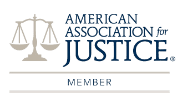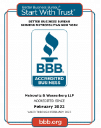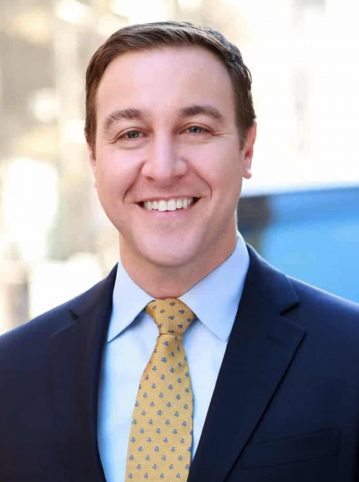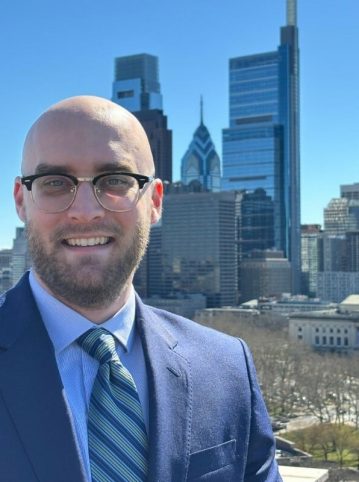Philadelphia Nursing Home Abuse Lawyer
The decision to place an elderly relative in a nursing home or assisted living facility is never easy. But when you entrust the care of your loved ones to others, you expect that they will be treated with the utmost respect and dignity.

Expertise
Samuel Meirowitz is “Top 100 Trial Lawyer” and an accomplished personal injury lawyer, trial attorney and relentless advocate for his clients. Previously, he served the State of New York for four years as a prosecutor in the Bronx District Attorney’s office. Mr. Meirowitz is admitted to practice law in New York and Florida State Courts.
Content written by Samuel Meirowitz

- Expertise
Samuel Meirowitz is “Top 100 Trial Lawyer” and an accomplished personal injury lawyer, trial attorney and relentless advocate for his clients. Previously, he served the State of New York for four years as a prosecutor in the Bronx District Attorney’s office. Mr. Meirowitz is admitted to practice law in New York and Florida State Courts.
Experienced Personal Injury Attorney
Quick Links
- What Is Nursing Home Abuse?
- The Nursing Home Reform Act: Residents’ Rights & Legal Protections
- How Common Is Abuse of Nursing Home Residents?
- Top Causes of Nursing Home Neglect & Abuse
- Warning Signs Of Elder Abuse In Nursing Homes & Assisted Living Facilities
- What To Do if You Suspect Abuse or Neglect in a Philadelphia Nursing Home
- How the Philadelphia Nursing Home Abuse Lawyers of Meirowitz & Wasserberg Can Help You
- FAQs About Nursing Home Negligence & Abuse Lawsuits
- Our Pennsylvania Personal Injury Attorneys
Unfortunately, no matter how much research you do or how many references you check, the potential for mistreatment by nursing home staff always exists. If you suspect that your loved one is the victim of nursing home abuse, you need to speak with a qualified Philadelphia nursing home abuse lawyer as soon as possible.
Contact Meirowitz & Wasserberg to schedule a free consultation with one of our experienced Philadelphia personal injury lawyers. We will review the unique circumstances of your case and help you understand your legal options.
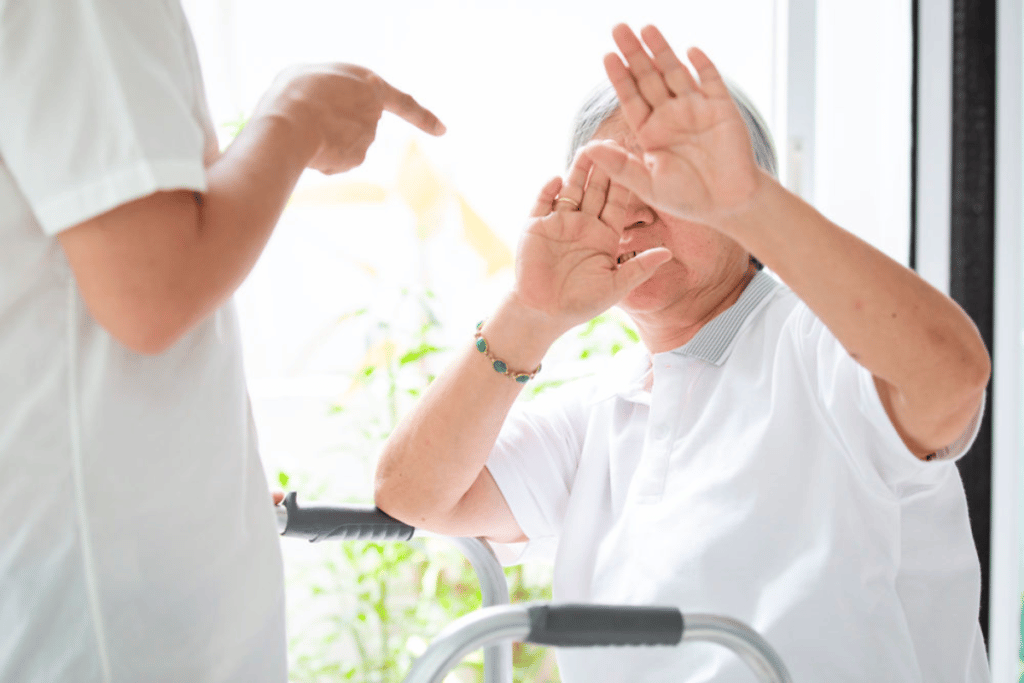
What Is Nursing Home Abuse?
Nursing home abuse and neglect occur when staff members actively mistreat or exploit residents in their care or withhold bare necessities. Although nursing home abuse can take many forms, it reflects a fundamental disrespect for the residents’ rights and dignity.
Some of the most common forms of nursing home abuse include:
- Emotional abuse includes yelling, name-calling, threats, and social isolation.
- Physical abuse involves excessive physical force or violence against nursing home residents. It can include anything from rough handling to more severe violence, including hitting, slapping, or shoving. It also includes the inappropriate use of physical restraints or forcibly administering medication.
- Sexual abuse includes sexual contact between a nursing home staff member and a resident without the resident’s consent. It may involve unwanted touching, rape, and forced participation in sexual acts.
- Financial abuse occurs when nursing home staff members illegally or improperly exploit residents for financial gain. It can include stealing money or property, using a resident’s credit cards without permission, or coercing residents into signing financial documents.
- Neglect occurs when staff members fail to provide residents with basic needs such as food, water, and medical care. In some cases, it can be intentional. But understaffing or poor training can also contribute to neglect leading to medication errors, bed sores, and other preventable health problems.
The Nursing Home Reform Act: Residents’ Rights & Legal Protections
In 1987, Congress enacted the Nursing Home Reform Act (NHRA) to improve the quality of care in nursing homes across the country. The federal law requires all nursing homes participating in the Medicare or Medicaid programs to provide nursing home residents with certain fundamental rights.
These include the right to:
- Receive quality care in a safe and clean environment.
- Be free from physical and psychological abuse.
- Have access to necessary medical and health services.
- Receive adequate nutrition and hydration.
- Have access to activities and social programs.
- Maintain privacy and dignity.
- Complain about any aspect of their care without fear of retribution.
How Common Is Abuse of Nursing Home Residents?
Abuse in nursing homes and assisted living facilities is often hidden because many residents are unable or unwilling to speak up about what is happening to them. However, national and worldwide estimates suggest that nursing home abuse is alarmingly common.
- According to a World Health Organization (WHO) study, about one in six adults aged 60 or older suffers some form of abuse in a community setting each year. The report also revealed that two in three staff members report having committed at least one form of abuse against residents in the past year.
- A report by the Office of the Inspector General (OIG) for the U.S. Department of Health and Human Services found that one in five emergency room visits from nursing homes resulted from abuse or neglect.
- A review of existing research published by the American Psychological Association (APA) estimates that only one in 24 elder abuse cases are reported to authorities.
With a rapidly increasing elderly population, the U.S. demand for nursing home care will surge. The Administration on Aging, a division of the U.S. Department of Health and Human Services, estimates that:
- The number of people aged 65 and older is expected to increase from 54.1 million in 2019 to 80.8 million by 2040.
- By 2060, the number of Americans aged 65 and older is projected to reach 95 million.
If available staff resources don’t keep pace with this demand, nursing home abuse and neglect cases will likely increase rapidly.
Nursing Home Abuse Statistics in Philadelphia and Pennsylvania
- Pennsylvania is home to about 2.4 million people aged 65 and older, the ninth-largest elderly population in the country. In Philadelphia alone, there are about 216,000 residents aged 65 and older.
- According to an investigative report by PBS WHYY, between 2012 and 2014, the Pennsylvania Department of Health dismissed 92 percent of complaints filed against Philadelphia nursing homes.
- A 2020 Pennsylvania Department of Aging report on the prevalence of financial exploitation of older Pennsylvanians found that the average financial loss to victims was nearly $40,000. And accounting for underreporting estimates, the projected annual losses to Pennsylvanias aged 60 and older could be as high as $2.5 billion.

Top Causes of Nursing Home Neglect & Abuse
While many factors can contribute to nursing negligence and abuse, some common causes include:
- Understaffing is among the most frequently cited problems in nursing homes is a lack of staff. It can lead to staff members feeling overworked and stressed, leading to increased mistakes and shortcuts in care for nursing home patients.
- Lack of supervision from understaffing can lead to abuse and neglect going undetected.
- Poor training of nursing home staff can contribute to abuse and neglect. Staff members may not be aware of proper procedures for providing care, or they may not know how to recognize the signs of abuse and neglect.
- Inadequate funding can lead nursing home managers to cut corners with care, putting residents at risk for abuse and neglect.
Regardless of the causes, the abuse and neglect of nursing home residents is a chronic problem that deserves greater attention.
If you suspect your family member is a victim of neglect or abuse, consider speaking with a Philadelphia nursing home abuse lawyer to learn more about your options.
Warning Signs Of Elder Abuse In Nursing Homes & Assisted Living Facilities
As previously mentioned, nursing home residents who’ve suffered emotional, physical, or sexual abuse by staff may be unlikely to speak up. Their reluctance may result from embarrassment, fear of retaliation, or because they suffer from speech disabilities.
Despite these challenges, friends and family must watch for common warning signs to identify if your loved one is a victim of elder abuse.
Physical Abuse Injuries
- Unexplained bruises, cuts, or welts
- Broken bones or evidence of bone fractures
- Sprains or dislocations
- Burns, particularly cigarette burns
Sexual Abuse Signs
- Bruising or bleeding in the genital area
- Sexually transmitted diseases
- Torn, stained, or bloody underclothing
Signs of Psychological Abuse
- Sudden changes in mood or behavior
- Withdrawal from social activities
- Loss of interest in hobbies or favorite activities
- Unusual fearfulness or anxiety
Financial Abuse Signs
- Unexplained withdrawals from bank accounts or credit cards
- Sudden changes in a will or power of attorney
- Unpaid bills, despite the availability of funds
Signs of Nursing Home Neglect
- Sudden weight loss or dehydration
- Poor hygiene or extreme changes in appearance
- Untreated bed sores
- Unusual changes in sleeping or eating habits
What To Do if You Suspect Abuse or Neglect in a Philadelphia Nursing Home
If you suspect that your loved one is being neglected or abused by nursing home staff, there are a few steps you can take:
If Your Loved One Is in Immediate Danger, Call 911
By contacting law enforcement, you can protect your loved one’s safety and obtain an official report of the abuse. This documentation can help you later if you decide to pursue a civil lawsuit against the abuser or the nursing home.
Report the Abuse to the Pennsylvania Health Agencies
In Philadelphia, you have a few options for reporting abuse. You can contact:
- The PA Department of Aging maintains a 24-hour hotline for abuse reports at 1-800-490-8505.
- The PA Department of Health also has a hotline for filing nursing home complaints at 1-800-254-5164. You can also file a complaint through their online form.
- The nonprofit Center for Advocacy for the Rights and Interests of Elders (CARIE) provides an ombudsman service for long-term care facilities. You can reach them through their online help form or call their support line at 215-545- 5728.
How the Philadelphia Nursing Home Abuse Lawyers of Meirowitz & Wasserberg Can Help You
Have you or a family member been harmed or denied essential services by a nursing home in the Philadelphia area? If so, our experienced and compassionate attorney will fight tirelessly to get you the justice and compensation you deserve.
When you hire Meirowitz & Wasserberg Law Firm, our legal team will:
- Conduct a thorough investigation of the abuse allegations. This work includes interviewing witnesses, reviewing medical records, and obtaining security footage.
- Consult with nursing home abuse and neglect experts to build a strong case on your behalf.
- Handle all correspondence and communication with the nursing home, their insurance company, and opposing counsel.
- File a civil lawsuit against the abuser or the nursing home.
- Prepare and file all necessary paperwork on time, including the complaint, summons, and other documents.
- If necessary, we will take your case to trial and fight to secure a verdict in your favor.
Free Case Evaluation for Your Nursing Home Negligence Lawsuit
We believe that every victim of nursing home abuse deserves justice. We are committed to fighting for the rights of nursing home residents mistreated by caregivers who neglect their duties.
When you schedule your free consultation with one of our experienced nursing home attorneys, you’ll learn more about the merits of your case so that you can make an informed decision about how to proceed.
Don’t suffer in silence any longer! Contact Meirowitz & Wasserberg, LLP today, and let us help you get the justice you deserve. Our attorneys are available 24/7 to take your call at (267) 507-9051.
FAQs About Nursing Home Negligence & Abuse Lawsuits
Who can be held legally liable for nursing home abuse in Pennsylvania?
Under Pennsylvania law, nursing homes must provide their residents with a certain standard of care. That includes protecting residents from abuse, negligence, and exploitation. When nursing homes fail to meet their duty of care, they may be liable for injuries or damages.
Can nursing home employees be held liable for abuse?
Yes. In Pennsylvania, you can take legal action against any individual staff member who has abused or neglected a nursing home resident. Because determining negligence and liability can be complex, consulting with an experienced nursing home abuse attorney can help you choose the best course.
How much compensation can victims recover in a nursing home abuse lawsuit?
The compensation a victim can recover in a nursing home abuse lawsuit depends on their case’s unique facts and circumstances.
For example, if a victim has suffered physical injuries, they may be able to recover damages for their medical expenses, pain and suffering, and lost wages. If the victim has died due to neglect or physical injuries, their family members may be able to recover damages.
How much does a Philadelphia nursing home abuse lawyer cost?
At Meirowitz & Wasserberg, we understand that you may be concerned about the cost of legal representation. That’s why we offer free consultations so that you can learn more about the value of your case without any obligation.
We also work on a contingency fee basis. That means you won’t owe us anything unless we recover compensation on your behalf. For your free case evaluation, please call our office at (267) 507-9051.
What is the statute of limitations for filing a nursing home abuse claim in Pennsylvania?
The statute of limitations is the deadline for filing a civil lawsuit.
Because there are few exemptions to this rule, you’ll need to act quickly to file a claim if a nursing home has harmed you or a family member. The knowledgeable personal injury lawyers at Meirowitz & Wasserberg can file your claim before it’s too late.
What evidence do I need to file a nursing home abuse claim?
To prove your case, you will need evidence that the nursing home staff was negligent in caring for your loved one. This evidence can take many forms, but some common examples include resident medical records, eyewitness testimony, and security footage.
An experienced personal injury attorney can help you gather the evidence you need to build a strong case.
How long does a typical nursing home abuse case take to resolve in Pennsylvania?
Depending on the facts and circumstances of your case, typical nursing home abuse cases can take up to two years to resolve. An experienced attorney can guide you through the process to ensure the best possible outcome for your case.
Can I file a claim if my loved one died from nursing home abuse or negligence?
Yes. You can file a wrongful death lawsuit if your loved one has died from elder abuse or negligence. You may be able to recover damages for a loved one’s serious injury or death, including funeral and burial expenses, medical treatment, pain and suffering, and more. Contact a Philadelphia nursing home abuse lawyer today to learn more about your options.
Our Pennsylvania Personal Injury Attorneys
AVAILABLE 24/7
Get Your Free Case ReviewPersonal Injury Settlements:
$200,000
Personal injury settlement
$235,000
Slip and fall injury
$675,000
Product liability injury
$555,000
Premises liability injury
Practice Areas
- Philadelphia Personal Injury
- Philadelphia Car Accidents
- Philadelphia Truck Accidents
- Philadelphia Motorcycle Accidents
- Philadelphia Pedestrian Accidents
- Philadelphia Bicycle Accidents
- Philadelphia Slip and Falls
- Philadelphia Brain Injuries
- Philadelphia Spinal Cord Injuries
- Philadelphia Wrongful Death
- Philadelphia Birth Injury
Our Office
Our Philadelphia, PA Office
- 1880 John F. Kennedy Blvd.Suite 1720Philadelphia, PA 19103
- (267) 507-9051
Nancy, New York (NY)


